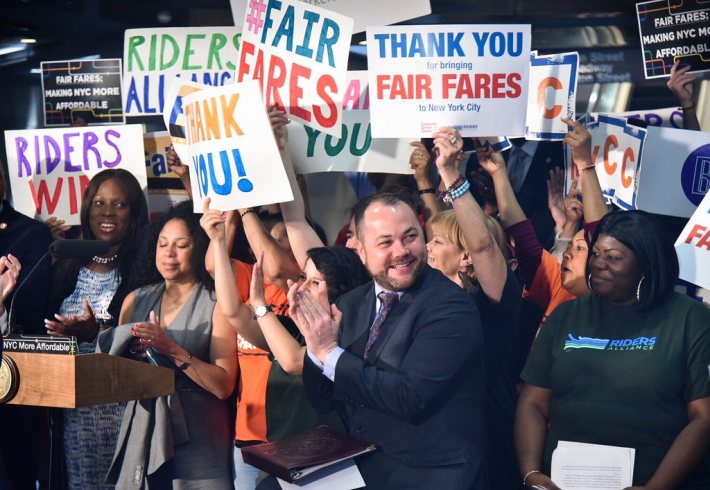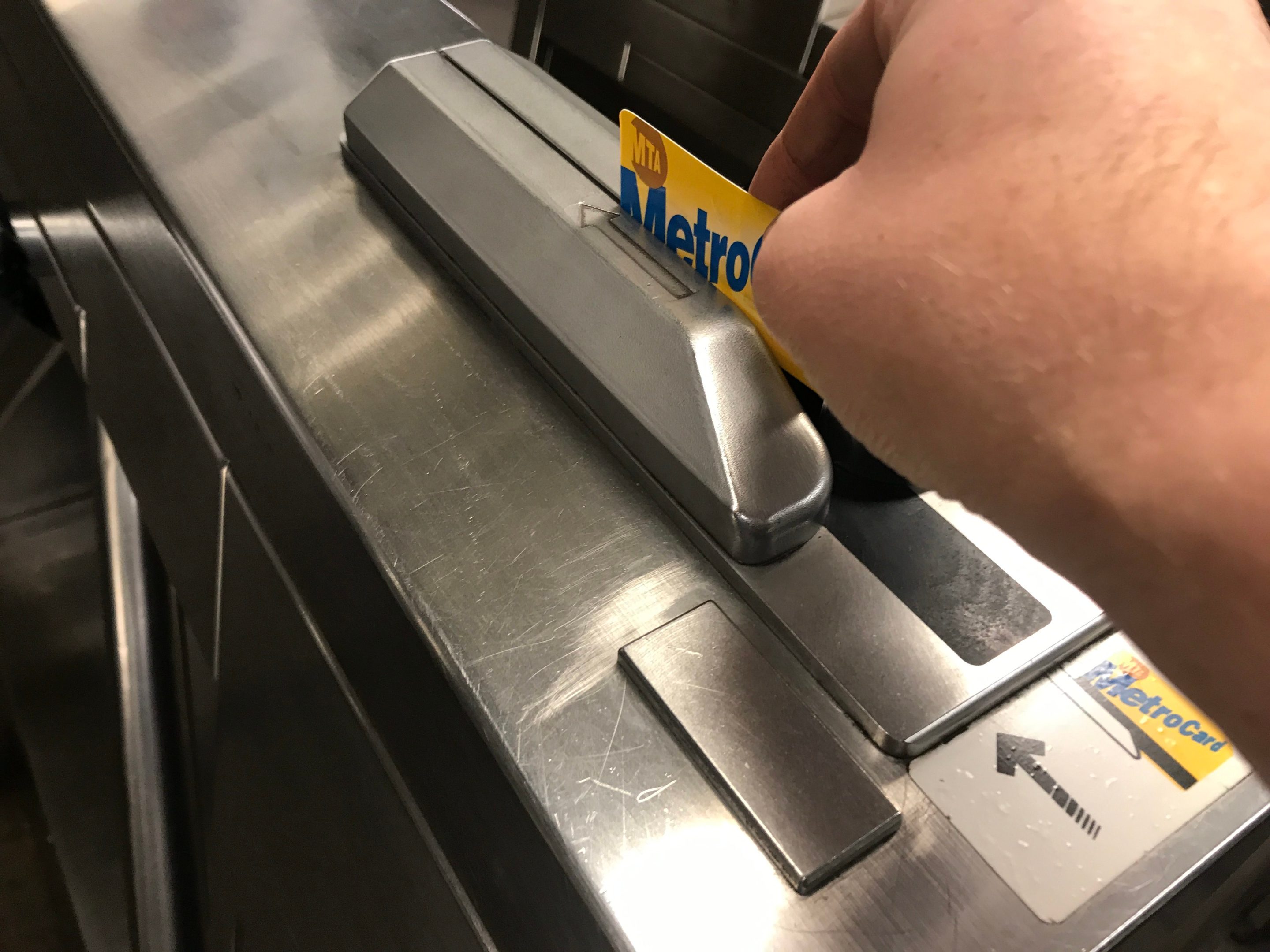The mayor wants to increase the cost of transit on some of New York's neediest workers.
Mayor de Blasio confirmed on Tuesday that he had cut $65 million from the projected $200-million Fair Fares program, which provides half-far transit for close to 200,000 New Yorkers — with another half-million meeting the eligibility.
"It's just think the reality of that program, which is a great program, it was an effective, important program," the mayor said on Tuesday morning. "I think the whole underlying concept of the program got just disrupted profoundly by the coronavirus and we're not going to see that turnaround in the short term."
It's unclear whether the cut will throw some existing members off the rolls — or if the savings are simply due to the expectation that far fewer riders will be using transit for the foreseeable future.
At a press conference on Tuesday afternoon, Council Speaker Corey Johnson said he didn't know what the mayor was talking about.
"We believe this is the re-estimate and it won't result in anyone losing Fair Fares," he said, citing the decline in transit ridership.
Council Member Steve Levin also suggested that no current riders would be affected by the cut, tweeting, "We’re not cutting enrollment to Fair Fares at all. ... If there is savings in the program, it’s because subway ridership is down so much due to Covid."
Still, New York City Transit Interim President Sarah Feinberg issued a statement being that the city had chosen to "defund the Fair Fares program":
“The mayor's decision to slash the Fair Fares program will make it more difficult for tens of thousands of customers who rely on mass transit to afford to get to jobs, school and work as New York continues to reopen." she said. "At a time when the MTA is hemorrhaging money at record levels due to the COVID-19 crisis, this cut sets us back and will further hurt our ability to provide critical services to New Yorkers." (City Hall has still not gotten back to us.)
Advocates were confused and angry.
"Mayor de Blasio must be clear in how these cuts will [not] impact New Yorkers. He must make every effort to deliver Fair Fares and the access to opportunity it provides New Yorkers, who need it now more than ever," said Riders Alliance Community Organizer Danna Dennis.
Dennis added that the worst time to cut a social program is when people are at their neediest — and that goes double for a period when essential workers are among the city's least paid.
"Transit remains absolutely essential to frontline and returning workers," Dennis said.
"It was an effective, important program." -- Bill de Blasio, confirming that he is cutting $65 million from Fair Fares
— Dana Rubinstein (@danarubinstein) June 30, 2020
Jaqi Cohen, the campaign director at the Straphangers Coalition, said that Fair Fares had not even reached close to its full potential, making the cut especially painful.

"There are 600,000 New Yorkers who were eligible for the program even before the COVID epidemic," she said. "So now, with so many people suffering, to cut a service that has been such a lifeline is so devastating."
She also pointed out that lower-income New Yorkers have stuck with transit at higher rates during the pandemic than higher-income commuters.
"You can see that in the fact that bus ridership numbers did not drop as much as subway or especially commuter rail," she said. "Fifty percent of bus riders were considered essential workers."
Johnson said he asked the mayor to cut his bloated, highly subsidized ferry system, with its $70-million annual budget, but Hizzoner refused.
"I think the ferry should have been cut," Johnson said. "We identified all sorts of cuts that they didn’t take. It was a negotiation, but in the end, the ferry system was only cut $10 million." (Each ferry ride is subsidized by more than $9.30, the highest in the nation — and that doesn't include the free Staten Island Ferry, which is 100 percent subsidized.)
The budget also cut $5.7 million more out of the mayor's Better Buses initiative, which had been announced earlier in the year.
Riders Alliance Senior Organizer Jolyse Race said those cuts would end up causing bus riders to be "stuck in traffic on crowded buses, increasing their risk for infection. The cut leaves DOT to stretch a smaller budget and speed up bus lane installation citywide."
The mayor did commit to building 20 miles of dedicated bus lanes this year.
This is a breaking story and will be updated.






